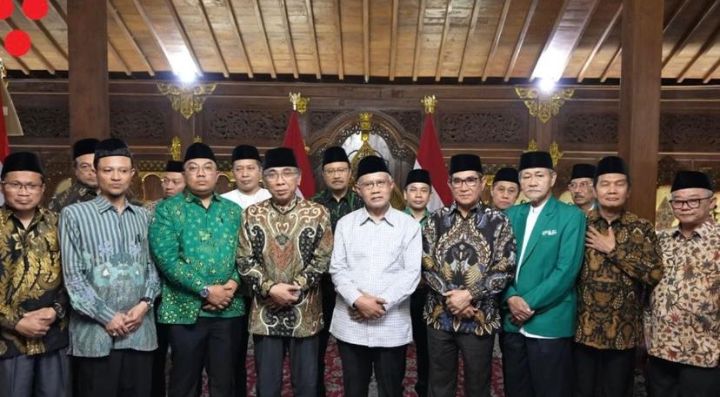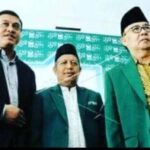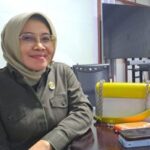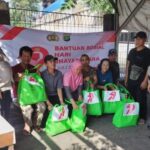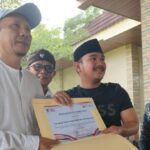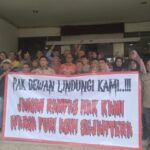Pandeglang – The General Chairman of the Mathla’ul Anwar Executive Board KH Embay Mulya Syarief along with the Secretary General of PBMA Babay Sujawandi attended the invitation of Indonesian President Prabowo Subianto in a meeting with leaders of 16 other Islamic organizations in Hambalang Bogor on August 30, 2025.
The Secretary General of PBMA stated in a press release in Pandeglang Banten that the meeting, which lasted approximately three hours, was conducted in an atmosphere of interactive dialogue between the President and the leaders of these Islamic organizations.
Several state figures were also present, including the Head of the National Intelligence Agency (BIN) Ret. Lieutenant General Muhammad Herindra and the Chairman of the People’s Consultative Assembly of the Republic of Indonesia Ahmad Muzani.
The meeting agenda discussed various national issues, ranging from the Palestinian problem, strengthening Islamic brotherhood, to evaluating the government’s public communication going forward.
On this occasion, the General Chairman of PBMA KH Embay Mulya Syarief presented Mathla’ul Anwar’s views regarding the developing national situation in the country recently.
« Mathla’ul Anwar emphasizes the importance of maintaining national unity amid developing political dynamics. The government needs to strengthen public communication so that the public receives clear, honest, and calming information. Additionally, attention to issues of the Muslim community, particularly Palestine, must continue to be a priority in Indonesia’s foreign policy, » he said.
Mathla’ul Anwar, he continued, supports the government’s steps in upholding social justice, improving education quality, and strengthening the national character of the younger generation.
As an Islamic organization born from the nation, according to KH Embay, Mathla’ul Anwar will continue to contribute to maintaining the integrity of the Unitary State of the Republic of Indonesia, nurturing brotherhood, and encouraging the emergence of public policies that side with the people.
Mathla’ul Anwar itself is an Islamic educational organization founded on July 10, 1916 in Menes, Pandeglang, Banten. Currently, this Islamic organization has representatives in various provinces across the country, including West Java, Lampung, West Kalimantan, and Papua.
Listen to the people’s aspirations
Previously, PBMA issued an official statement regarding the political and social dynamics developing recently. This stance was conveyed as a form of Mathla’ul Anwar’s moral and national responsibility in maintaining peace and unity and respecting the people’s aspirations.
In its official statement, PBMA expressed deep condolences over the passing of Affan Kurniawan, an online motorcycle taxi driver who became a victim in protest events in Jakarta, and prayed for the deceased to receive husnul khotimah (a good ending) and for the family left behind to be given strength and fortitude.
PBMA also urged law enforcement officials to handle the case firmly, fairly, transparently, and professionally, and to take action against all forms of authority abuse that harm the people. Public interest, social justice, and public safety must be the main priorities in handling the situation.
Furthermore, PBMA appreciated society for expressing opinions in public as part of the democratic process, but urged that aspirations be conveyed orderly, peacefully, and while upholding noble morals and maintaining calm without being provoked.
PBMA invited all elements of the nation to prioritize dialogue, deliberation, and peaceful methods in responding to differences of opinion or interest. All parties were reminded to avoid hate speech, violence, or actions that could worsen the situation.
PBMA also reminded that maintaining the unity and integrity of the Unitary State of the Republic of Indonesia (NKRI) is a constitutional mandate, as well as religious teaching for the benefit of the community. Therefore, values of brotherhood, peace, and unity must continue to be maintained by all citizens.
Additionally, PBMA invited state officials, security apparatus, religious leaders and community figures, as well as civil elements to together cool the atmosphere and exercise restraint while maintaining security and conduciveness for the greater interest of the nation.
PBMA emphasized that the public should not be provoked and should not be pitted against security forces or any other party, and should give opportunity to related institutions to make improvements.
It was also mentioned that, from Mathla’ul Anwar’s perspective, this stance simultaneously serves as an instruction to all parties within the

